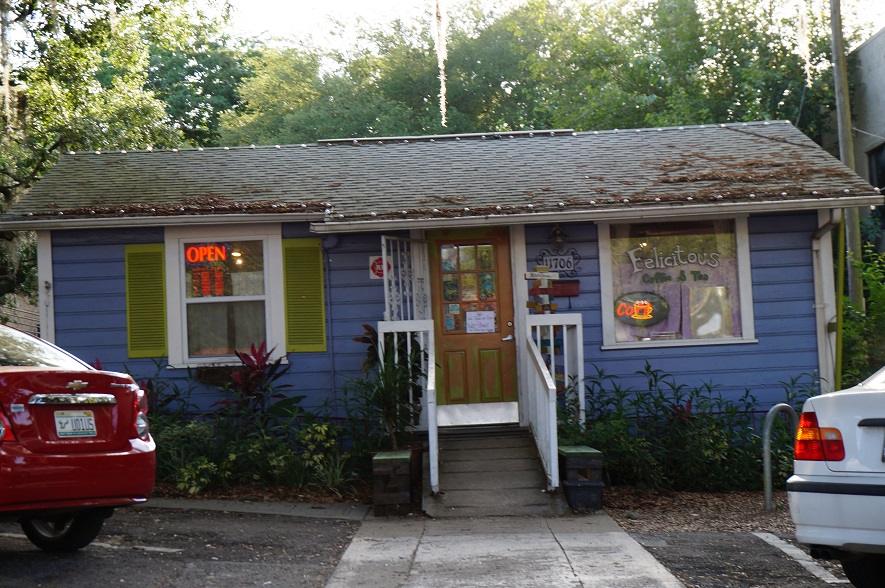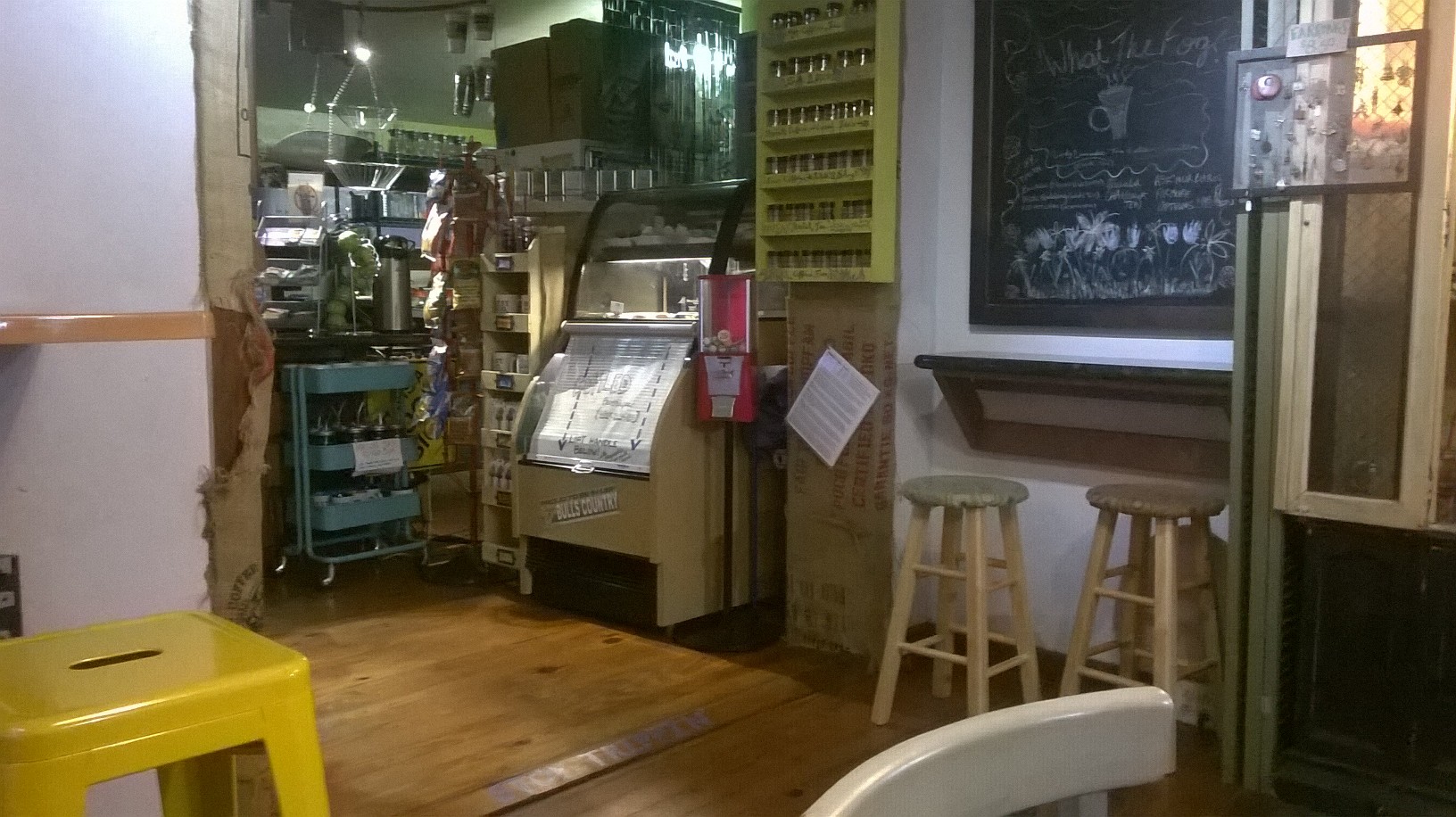Movement

The initial idea for this project grew out of what I thought my class journal would be. It quickly became apparent, however, that the journal became a series of reflections on specific works in sequence with the class, rather than a contained (if barely so) project. The idea evolved significantly as a result of three things: 1) my continued interest in seeing the ways and locations in which the boundaries of the physical and embodied blur into the boundaries of the "virtual," 2) re-approaching my thoughts on space and place, particularly in terms of their role in publicity, during the course of my comprehensive exam preparation, 3) our class meeting here, at Felicitous.
In order to prepare for class on that day - one of the peer-led interest days, we were asked to read Milligan's "Interactional Past and Potential" (1998). In it, Milligan explores displacement through an examination of a student-run coffee house that, after existing for many years in the same location, was relocated to a new home. The attachment to both the old and the new are understood differently based upon the experiences of the employees of the "Coffee House." During our class meeting, we were asked to explore Felicitous and to focus on a single location or object, and to consider it in terms of its potential within this space. I myself chose a small counter bar that at first glance has little functional value - it is only extends about a foot and a half from the wall (my laptop is turned a bit sidewise on it right now). I chose it because its value seemed to be purely decorative, as not only is it small, but it is also positioned right between the kitchen and counter area and the seating area. It is on a threshold, a boundary, framed by shelves containing crafts for sale and a rack of available teas, the chalkboard with the day's specials is right in front of my face. People are moving around me right now in order to reach the ordering counter. The potential of this location is, at first glance, limited. The first time I chose it, I did so recognizing the potential to observe movement through this boundary area, and how people reacted to my presence at what is obviously a little used seat. This yielded more than I thought it would, and remembering this experience I am here once again.
Movement, particularly across borders, through portals, around barriers, and from/to ideas is an important component (and guiding reason) to this experiment. During our class time spent here, we discussed the possibilities of Felicitous in terms of a physical space, but also a place of. We discussed the potential of Felicitous as a place of community, pointing out its location in relation to the University of South Florida. Similarly, we discussed it in terms of being a place of work, where students could gather to complete tasks. Felicitous has competing designs that conflict rather than complement. On the one hand, it is small, with seating arranged intimately. This begs to be the type of third place that Oldenburg (1999) and others refer to in terms of being a place where friends and strangers alike can gather and discuss, "do community." Yet, it was largely quiet on that day, save for our own voices, as most of the patrons of Felicitous worked, played, and/or interacted through their laptops with requisite white earbuds creating a soundscape all their own. It is much the same now as I type this, save for a small group in the corner discussing the recent events taking place in Baltimore. Tellingly, the description of Felicitous on their website indicates a specific desire for creating a community space based on the owner's memory of favored establishments elsewhere. Though there are some aspects of this that come through, I feel it falls short in terms of the outcome of its specific design. I will discuss this more somewhere else, however. What interests me most about this place is the ways in which it is a site of movement.
Movement of bodies in this space is currently disrupted by my presence at this small counter. There are a number of open seats, yet I chose the only one that will alter the course of others as they go from one room to the next. My larger question, though, is how can an instance such as this be seen in the movement of ideas? Given the history give on the Felicitous website, this site is one of re-placement. The owner of Felicitous has sought to re-place the values of community in one time and space to another. I suggest the term "re-place" to signify the intentional establishment of the thoughts, values, and ideals in context meant to resemble those places in which they were earlier recognized. This, I feel, provides a different, though not oppositional, way of exploring the interactional past and potential that Milligan discusses. But still, I return to the question of what effects that movement in the same way I am effecting the movement of bodies around me? I'm not sure I have an answer for that, yet.
In the case of Felicitous, the movement ideas has happened through this process of re-placement, where memory is the key medium relied upon to bridge the past to the present, to the potential future. It is likely that the physical design of Felicitous has been influenced by this memory. In "Re-Space-ing Place," Paul Dourish (2006) argues that place emerges before space. This is countering earlier ideas of space and place that position one (usually the former) as a physical container that the other emerges from. Space, he contends, is not merely a physical (or non-physical) site within which place can take root, but is itself socially constructed. The design of Felicitous and similar spaces represent this as they are designed in a way (such as arranging seating closer together) to reflect ideas held as important and re-placeable. The place existed in the mind and memory, which informed the design of the space, out of which a new, but related place was meant to continue. It is a bit like retrieving a fresh cutting from a favorite tree and planting it in a new yard in hopes it will grow - it may or may not be successful.
